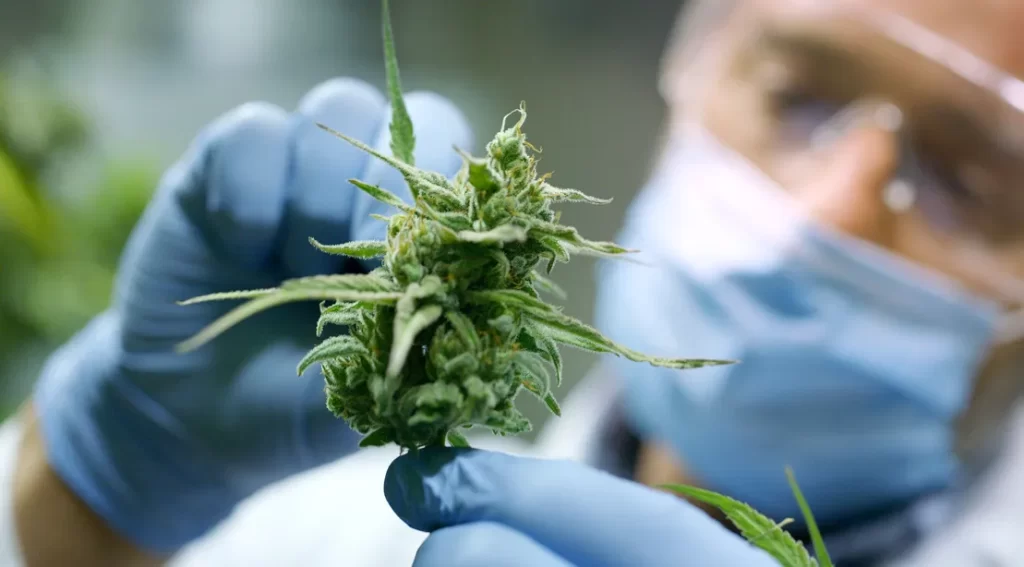 The relationship between marijuana use and mental health is a complex and often debated topic. While some people believe that marijuana can alleviate symptoms of certain mental health conditions, others are concerned about its potential negative effects on mental well-being. To understand this relationship better, it’s crucial to explore both the potential benefits and risks associated with marijuana use in the context of mental health.
The relationship between marijuana use and mental health is a complex and often debated topic. While some people believe that marijuana can alleviate symptoms of certain mental health conditions, others are concerned about its potential negative effects on mental well-being. To understand this relationship better, it’s crucial to explore both the potential benefits and risks associated with marijuana use in the context of mental health.
Benefits of Marijuana for Mental Health
Let us discuss a few important health benefits of weed.
Relief from Stress and Anxiety
Many individuals use weed as a means of coping with anxiety and stress. THC, the psychoactive compound in marijuana, can induce feelings of relaxation and euphoria, which may help alleviate symptoms of anxiety in the short term. Additionally, some research suggests that CBD, another compound found in marijuana, may have anxiolytic properties, potentially reducing anxiety levels without the intoxicating effects of THC. You can buy weed pen or shop for any other product you find convenient to take your daily dose of weed.
Sleep Aid
Insomnia and sleep disturbances are common symptoms of many mental health disorders. Marijuana has been reported to help some individuals fall asleep faster and improve sleep quality. However, the evidence regarding its long-term effects on sleep is mixed, and regular use may disrupt sleep patterns in some individuals.
Pain Management
Chronic pain often coexists with mental health disorders such as depression and anxiety. THC gummies for sale show analgesic properties and can help alleviate pain, thereby improving overall quality of life for individuals struggling with both physical and mental health issues.
Risks of Marijuana for Mental Health
While weed has several advantages for mental health, it has some risks and limitations you should be aware of.
Cognitive Impairment
Long-term, heavy marijuana use has been associated with cognitive impairment, particularly in areas such as memory, attention, and executive functioning. This impairment may persist even after discontinuing weed use, affecting academic, occupational, and social functioning.
Mood Disorders
While some individuals buy Indica flower online to alleviate symptoms of depression and anxiety, there is evidence to suggest that marijuana use, particularly heavy and chronic use, may exacerbate or trigger mood disorders in susceptible individuals. Additionally, cannabis use during adolescence has been associated with an increased risk of developing mood disorders later in life.
Psychosis and Schizophrenia
Perhaps the most concerning potential risk associated with marijuana use is its link to psychosis and schizophrenia. Research suggests that heavy and frequent marijuana use, especially during adolescence and young adulthood, may increase the risk of developing psychotic disorders such as schizophrenia, particularly in individuals with a predisposition to these conditions.
Dependence and Addiction
Like many psychoactive substances, marijuana has the potential for dependence and addiction. Regular, heavy use of marijuana in the form of infused pre rolls for recreation can lead to tolerance, withdrawal symptoms, and difficulty controlling use despite negative consequences, indicating a substance use disorder.
Understanding the Link Between Mental Health and Weed
It’s essential to recognize that the relationship between weed and mental health is not one-size-fits-all. Factors such as the individual’s age, genetic predisposition, frequency and quantity of marijuana use, method of consumption, and presence of underlying mental health conditions all play a role in determining how marijuana will affect mental well-being.
For individuals considering using weed for mental health purposes, it’s crucial to weigh the potential benefits against the risks and to consult with a qualified healthcare professional. Additionally, practicing harm reduction strategies, such as using marijuana in moderation, avoiding high-potency products, and seeking support if experiencing negative effects, can help minimize potential harm.
Final Thoughts
The relationship between weed and mental health is multifaceted, with both potential benefits and risks to consider. While cannabis may offer relief for some individuals struggling with anxiety, pain, or sleep disturbances, it’s essential to be mindful of the potential negative effects, especially regarding psychosis, dependence, cognitive impairment, and mood disorders. Ultimately, informed decision-making and responsible use are paramount when considering the role of marijuana in mental health management.